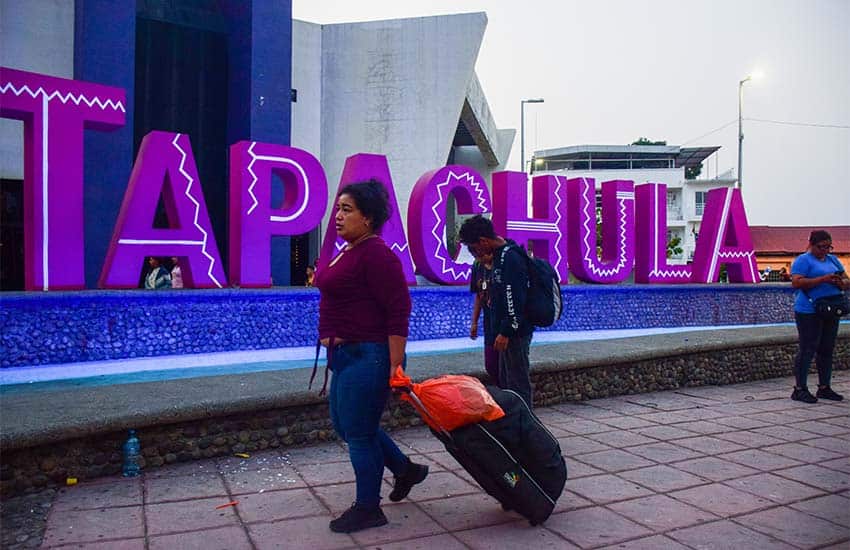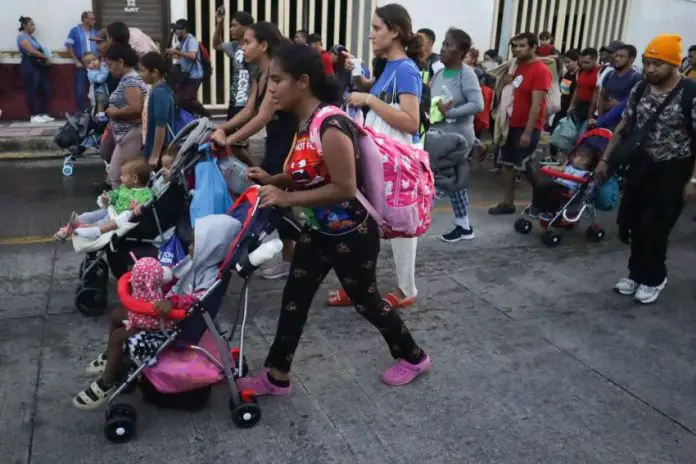Amid tension between Mexico and the United States ahead of the inauguration of Donald Trump, Mexican immigration authorities broke up two small migrant caravans headed for the U.S. border.
However, on Monday a new caravan of roughly 2,000 migrants left the southern border city of Tapachula, intent on reaching the United States.

Migrants rights activist Luis García Villagrán said the breaking-up of the two caravans appeared to be part of an agreement between the president of Mexico and the president-elect of the United States, the Associated Press reported.
The action came shortly after President Claudia Sheinbaum and President-elect Trump discussed Trump’s threat to impose 25% tariffs on all Mexican products entering the United States unless Mexico does more to stem the flow of migrants to the U.S. border.
While Trump insisted Sheinbaum had agreed to stop all unauthorized migration to the United States, Mexico’s president disputed that claim, saying “Mexico’s position is not to close borders but to build bridges between governments and between peoples.”
Instead, Sheinbaum wrote on her social media accounts, “migrants and caravans are taken care of before they reach the border.”
Blocking the caravans
Undocumented migrants have been detected in record numbers so far this year. Mexican authorities reported finding 925,085 migrants from January through August of this year, an increase of 132% over the 398,991 during the first eight months of 2023.
The AP reported that immigration authorities and the Army had dismantled the two caravans — comprising approximately 4,000 migrants — by bussing them to cities across central and southern Mexico while also offering 20-day transit documents.
Rights activists are warning migrants not to be deceived by the INM offer, reported the publication Infobae.
The National Immigration Institute (INM) responded by issuing a statement on Saturday saying the migrants voluntarily accepted bus rides “to various areas where there is medical assistance and where their migratory status will be reviewed,” and insisting the migrants “no longer wanted to face the risks along their way.”

García Villagrán, the migrant rights activist, has accused the INM of lying to migrants by promising them shelter and transit documents. Instead, García told Infobae, they are abandoning them in cities outside of migrant routes with the intention of eventually deporting them.
The warning has reached the new caravan preparing to leave Chiapas this week.
One migrant in Tapachula told Sin Embargo that they don’t trust the authorities. “We have seen [INM] agents lie about helping us,” he said. “Some have been detained for three days then released without any documents.”
A Guatemalan migrant told the newspaper La Jornada that he would prefer the transit documents to be validated as they advance north. “The only thing we ask is that they let us continue on our way,” he said.
With reports from Sin Embargo, The Associated Press, La Jornada, Infobae and El Piñero
